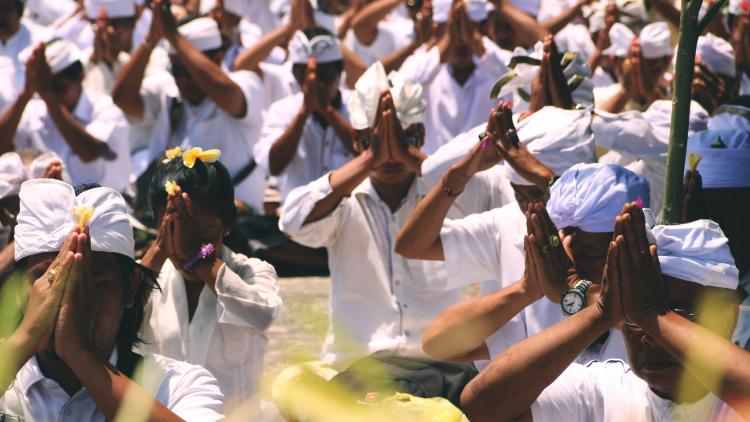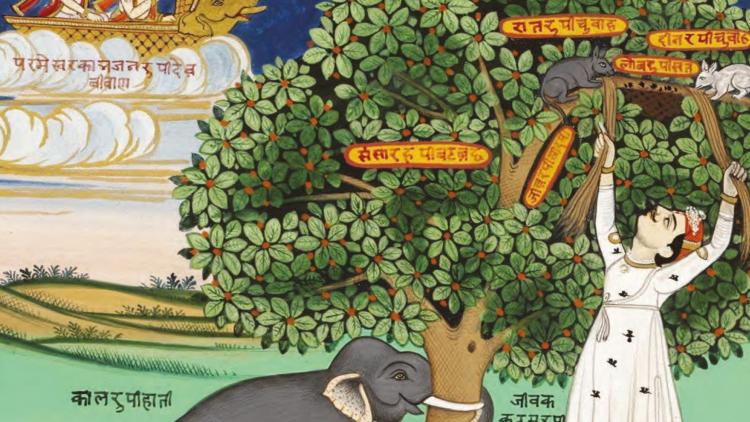Jaruwan Teanmahasatid

Key information
- Qualifications
-
• A Co-Researcher Engages in ‘Sino-Thai social Network Performance and Rituals’, granted by Pridi Banomyong International College and Thammasat University.
• External Recognition and Awards from Thammasat University on Research Day 2018: • Best Conference Paper Award at the Seminar on Political and Governance on Non-Traditional Security in South Asia at National Chung Hsing University in Taiwan • Chinese language course granted by Thammasat University scholarship on Massive Open Online Courses (MOOC) - Email address
- 687098@soas.ac.uk
- Thesis title
- The Changing Socio-Economic Geography of Sino-Thai Family Businesses in Central Bangkok Community, 1910s-1960s
- Internal Supervisors
- Dr Lars Laamann
Biography
Jaruwan Teanmahasatid, current Ph.D. student at History department. Her work in work-based learning at the tertiary institution one her master’s degree from Peking University was also funded by China Scholarship Council.
It grounded her interest in exchanging knowledge outside of institutional spaces (commercial areas), therefore leading to the current research on the history of Overseas Chinese family businesses, mercantiles, and commercial communities in Thailand through oral history as a benefit of her academic background in Thailand, China, and the UK.
A Thammasat University scholarship also funded her studies. With a passion for Chinese history, philosophy, and cultural knowledge, after graduation, she pursued her career as a lecturer at my alma mater, the Pridi Banomyong International College, Thammasat University, where she taught intermediate-level Chinese and Chinese business culture and etiquette. Moreover, her research, which focused on the knowledge transfer of Chinese-Thai family businesses, won the best research paper award at the Seminar on Political and Governance on Non-Traditional Security in South Asia at National Chung Hsing University in Taiwan in 2018.
She also received an external recognition award from Thammasat University during Research Day 2019. In addition, she has gained experience in both commercial and professional translation, as well as personal teaching in Chinese Mandarin.
Research interests
My doctoral research focuses on the Sino-Thai family businesses of Chinese community markets in Thailand, which shall be analysed as a microcosm of the socio-economic experience of the overseas Chinese in Thailand and, by extension, of the Chinese diaspora in Southeast Asia.
This project seeks to chart the integration of this local community into their host country and the contradictions which this process has produced. The research posits that the Chinese commercial community successfully adopt to the changing political landscape in Thailand after WWII by integrating onto the domestic Thailand and international markets. In so doing, they interconnected with other markets on four different modes:
- within the Thai Teochew community
- in between Teochew communities in the rest of Southeast Asia
- With other Chinese dialect groups (eg. Hakka or Chin Haw)
- with external intermediaries such as Thai, Malay or Yunanese middlemen. Apart from this, my future project is how Thai government after democratic revolution controlled Chinese descendants in Thailand by suggesting mercantile career through Chinese Language Textbook which played a role in shaping national and economic discourse.
This examines elementary-level textbooks from different historical periods, including those published by the Shanghai Printing House in 1949 and Thailand's Ministry of Education in 1978. Against the backdrop of political and economic agendas such as anti-Chinese, nationalist economic plans, and cultural assimilation efforts, the paper analyzes how these textbooks reflect and reinforce societal, divisions and nationalistic economic ideologies.
Specifically, the 1978 textbook portrays a distinct separation between Thais and Chinese, framing the latter primarily as small-medium merchants. Meanwhile, the incorporation of Sun Yat Sen-inspired Chinese modernity and references to the Thai royal family in the Thai government's textbooks further underscore the role of educational materials in shaping national identity and influencing the career paths of Thai Chinese descendants.
Contact Jaruwan
- Social media


